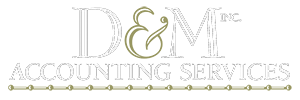Section 179 is a provision of the IRS tax code that allows businesses to deduct the full purchase price of qualifying equipment in the year it’s purchased and put into service. This differs from standard depreciation, which spreads deductions over multiple years. Section 179 can create significant tax savings, but it changes yearly. This article will cover:
- The changes made to Section 179 in 2025
- How these changes affect small businesses
- Strategic planning for Section 179 deductions
This information is intended to be an overview for managing depreciation deductions, not a comprehensive tax planning guide. Contact our CPA office to learn more.
Major Changes to Section 179 for 2025
In past years, only new equipment purchases qualified for an instant deduction. The most impactful change to Section 179 for 2025 is the inclusion of used equipment as qualifying property. That means small businesses can now deduct a percentage of the purchase price of pre-owned assets that cost less than new assets, creating savings on multiple fronts.
Another change is a federal inflation adjustment. The limit for Section 179 deductions has been increased to $1.25 million for 2025, and the spending cap has increased to $3 million. If your business exceeds that threshold, the deduction phases out dollar-for-dollar until it reaches zero when your equipment purchases hit $4.25 million.
The list of qualifying property types has also been expanded. In the past, Section 179 has applied only to traditional equipment and machinery. Starting this year, it includes specific improvements to nonresidential real property, including roofs, HVAC systems, fire protection, and security systems. This incentivizes small businesses to upgrade their facilities.
How Section 179 Works with Bonus Depreciation in 2025
Section 179 is not the same as bonus depreciation, but the two can work in concert with one another if you properly structure your tax filing. Here’s how that works:
- Section 179 First: There are specific limitations to Section 179, so you should apply it before taking bonus depreciation. This sequence maximizes your tax benefits.
- Bonus Depreciation Reduction: Bonus depreciation decreased from 60% to 40% in 2025. This is part of a gradual stepdown that’s been in effect since 2022.
- Combined Benefit Example: A business purchases $2 million in qualifying equipment and deducts $1,250,000 using Section 179. They then apply 40% bonus depreciation to the remaining $750,000, giving them an additional $300,000 in first-year deductions. That’s a total of $1,550,000 in deductions in the first year.
Strategic Planning for Section 179 Deductions
Knowing that Section 179 can provide tax benefits is one thing. Strategic planning to maximize those tax savings is another. This is where our office can help you the most. Our seasoned CPA team has the experience and knowledge necessary to ensure your business gets the most out of the new tax code changes. Our strategies include:
Timing of Purchases
The numbers will likely change again in 2026, so it’s important to take advantage of this year’s depreciation deductions by purchasing equipment before December 31, 2025. That could include accelerating new and used equipment purchases you have planned for early 2026, when bonus depreciation is scheduled for another 20% reduction.
Used Equipment Strategy
Including used and pre-owned equipment in Section 179 creates an opportunity for small businesses to cut costs. The strategy in this scenario is to shop for quality used equipment at a reduced price. In many cases, small businesses can get more value for their dollar while still receiving the same tax benefit as buying new.
Vehicle Deductions
Vehicle purchases are also included in Section 179, but there are some limitations. The 2025 maximum deduction for SUVs weighing between 6,000 and 14,000 pounds is $28,900. Heavier vehicles, like tractor-trailers or construction equipment, may qualify for the full deduction if they’re used exclusively for business purposes.
Leasing vs. Buying
This one can be tricky. Leasing equipment and electing to treat the lease as a purchase could qualify for a Section 179 deduction without the large cash outlay of a major purchase. It sounds simple, but it can get a bit sticky if you don’t do it properly. This is a complex area that requires consultation with a tax professional. Call us if you’re considering it.
Common Section 179 Mistakes to Avoid
Section 179 is a tool to help small businesses minimize tax liabilities, but it’s not automatic. The common mistakes we often see include failure to elect the deduction, ignoring recapture rules, miscoordinating with bonus depreciation, or overlooking state tax implications. Here’s a breakdown of what each of those looks like:
- Failure to Elect the Deduction: Section 179 is not automatic. Businesses must explicitly elect to take it by filing Form 4562. Failing to do this means missing the deduction and taking on unnecessary tax liability.
- Ignoring Recapture Rules: Depreciation is based on the business use of the asset. If that declines to 50% or less, you may need to recapture some of the deduction as ordinary income. Our CPAs can answer any questions you have on this.
- Not Coordinating with Bonus Depreciation: Section 179 and bonus depreciation work best when done in concert with one another. Failing to coordinate these two tax provisions can lead to suboptimal results.
- Overlooking State Tax Implications: Some states don’t fully conform to federal Section 179 provisions. Your federal deduction might be much larger than what’s allowed for state tax purposes, creating unexpected state tax liabilities.
Conclusion
Section 179 of the IRS tax code provides an opportunity for small businesses to deduct the full depreciation of equipment purchases in the same year as the purchase. The limits on that provision have changed in 2025, so it’s important to seek professional accounting advice on how best to apply this deduction and take advantage of bonus depreciation. Our team is standing by to assist you with this. Call 262-253-9955 or send us a message today to learn more.


